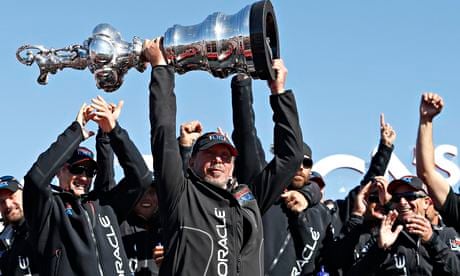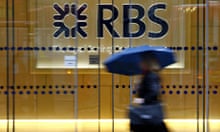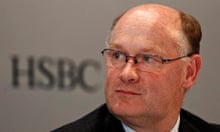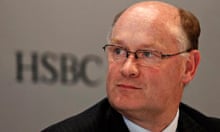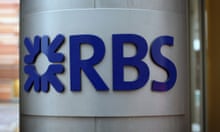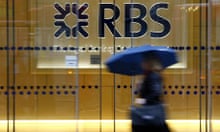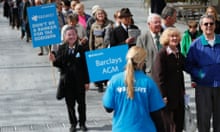Even American eyes are starting to pop at the sheer extravagance of executive pay. Last week, the New York Times published its annual league table of chief executive pay at the US's top 100 publicly quoted companies. The average has now climbed to $13.9m (£8.3m).
That is nearly twice the average of £4.4m for CEOs within Britain's top 100. But since America's top 100 companies are, on average, around three times larger in terms of turnover than our own, one could argue that executives are even better paid in Britain.
A growing number of US commentators are asking, as are some of the braver remuneration consultants, just why executives in America need to be paid so much. The LA Times, for example, headlined one opinion piece "Obscenely high salaries are stark reminders of US wealth gap". The NYT talked about the dark side of executive pay driving US inequality. What do these men – and 91 of the 100 are men – actually do with so much money?
The rationale is that such pay is needed to drive "performance". One of the eye-catching examples was Oracle's Larry Ellison, already the world's fifth richest man, who collected $78.4m in 2013. But does he need so much cash to push Oracle's performance, and if so, why does Larry Page at Google need only $1m? It was true that 26 CEOs on the list saw their remuneration fall slightly, but that was more than offset by some astonishing and quirky rises. A fall in any one year is quickly compensated by a vast increase later.
It is beginning to be obvious that performance has hardly anything to do with the sustained rise in executive pay. Why should British CEOs in charge of smaller, generally less complex companies be paid proportionally more than their counterparts in the US? Does it make sense that 60% of pay comes in options to buy shares, so that executive focus is wholly on doing those things – cutting investment, avoiding risky innovation, using cash to buy company shares etc – that keep up the share price. CEO pay has been sky high in the US for a decade and has doubled in Britain over the same period, but has economic and corporate performance been that stellar in either country? Some economists argue that it is the direct cause of the collapse of business investment in both countries. Even the most eloquent apologists are increasingly mute.
The answer is that these "super-salaries" have almost nothing to do with performance and everything to do with CEOs keeping up with each other in a status race. In my interim review on fair pay for the UK government three years ago, I noted that one of the best determinants of any CEO's pay in the US was the size of his or her social network. The more examples of highly paid members in one's network, the more generous a remuneration committee felt it had to be. Ellison will doubtless point not to other CEOs of publicly quoted companies to justify his pay, but to Leon Black, chair of the private equity group Apollo, who pocketed $546m last year.
In Conspicuous Consumption, a book published in 1899 when inequalities in wealth and income matched those of today, economist Thorstein Veblen captured this social dynamic well. There is a logic to the already very wealthy needing more wealth: they show it off to demonstrate where they are in the social pecking order. Veblen writes that, while the livery worn by personal servants, the nature of pets and the grandness of parties may seem to be economically irrational if not futile, to the very rich, these are subtle, socially honed indicators of standing.
For example, rich men's wives at the end of the 19th century had a particularly important role, he argued, as highly visible " ceremonial consumers of goods". The sophistication of the household they ran, the quality of its furnishings and the extravagance of their clothes indicated the standing of their husbands. They had transmuted from being male chattels, said Veblen, to becoming lead players in driving conspicuous consumption. Economically irrational, certainly, but in social terms wholly comprehensible.
We now live in an era of "conspicuous executive pay" – only understandable as a social phenomenon because its extravagance has ceased to have economic logic. In the 1890s, Veblen observed that one of the reasons sports such as shooting and yachting were so attractive for conspicuous consumption was that they were the best ways of acting on predatory, aggressive, "aristocratic" behaviour – crucial to the very wealthy – but in a peaceful way.
So today the successful CEO shows the predator instincts behind his success by doing something extravagantly but peacefully competitive – taking part in the America's Cup (Ellison), ballooning (Richard Branson) or racing at Le Mans. Owning an island in the Pacific (Ellison owns Lanai in Hawaii) or Caribbean shows your need for extreme privacy and luxury – the quintessential expression of a natural aristocrat. Meanwhile, your exquisitely dressed partner – usually but not always a wife – runs a household in Manhattan or central London with an underground cinema and swimming pool and top private chef. The sexes may have grown more equal between the 1890s and the 2010s, yet it is still women – as wives – who are typically leaders in "ceremonial consumption".
The problem is that these are no longer the harmless peccadilloes of the super-rich needed to incentivise performance. Rather, the US and British economies are increasingly being run to deliver these lifestyles but with disappointing wider economic results.
What can be done? Cornell University professor Lynn Stout proposes that all tax relief should be withdrawn on any CEO pay packet that is 100 times the minimum wage – " simple and sweet". The Brookings Institution's Leonard Burman suggests that income tax brackets should be adjusted for inflation and for target levels of income inequality. Financial Times money editor, Merryn Somerset Webb, argues that all gifts of capital during life or as inheritances – and I would include selling profitable share options – should be taxed as unearned income. You could add a twist and adjust the gift tax rate to achieve target levels of wealth inequality.
There are remedies: what is needed is the political coalition to deliver them. The dilemma is that society needs successful business and politicians, especially on the left, do not want to be painted as anti-business. Yet something must be done. The reaction last week to the NYT figures suggests a long overdue change in the US debate, which sets the tone worldwide. From this year, for example, US companies are compelled to publish the ratio of top pay to the median (which I also called for in my pay review). It's a straw in the wind – and Labour, if elected, will follow suit. Maybe, just maybe, the times are a'changing. They need to.
